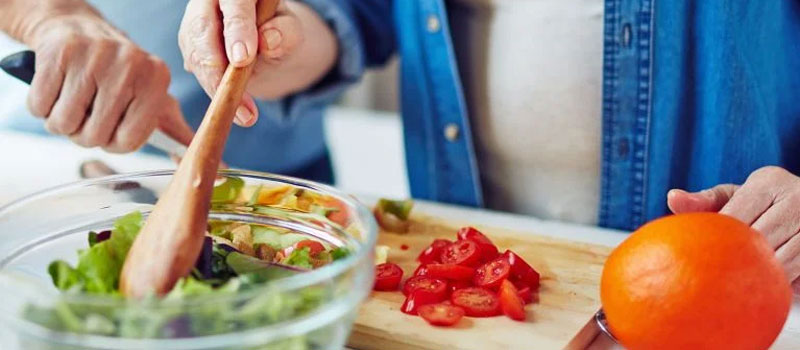
Diabetes cannot be cured but it can be managed.
If you have diabetes, you should work closely with your healthcare providers to keep your blood pressure, cholesterol, and sugar levels under control. Here is some expert advice from Dr. Swapna’s Diabetic Care, from the Health in Aging Foundation, for older adults with diabetes and their caregivers.
Plan:
Work with your Doctor Swapna Reddy to develop a diabetes treatment plan. For many patients, the diabetes educator is an important member of your team who can teach you about the best way to eat and stay active. Your treatment plan should meet your needs and your wishes.
Make the most of Dr Swapna Diabetic Camps.
These camps will cover a visit with a diabetes educator and counselling from experts across various departments.
Eat smaller portions.
Eating more small meals over the course of the day can help keep your blood sugar levels steadier than eating three large meals.
Choose whole grain breads, cereals
Whole grains have more fiber, and take longer to digest than white flour and other refined starches. Whole grains, such as whole wheat flour, brown rice, oats, and barley, can help keep your blood sugar levels steadier.
Eat a wide variety of low-calorie produce.
Choose bright or deep-colored fruits and vegetables such as spinach, green or red lettuce, tomatoes, carrots, broccoli, squash, or sweet potatoes. These foods are better choices than white potatoes or iceberg lettuce.
Avoid sugary drinks and foods
Drink water or unsweetened tea instead of soft drinks or other beverages high in natural or added sugar. Enjoy fresh fruits for dessert. Avoid processed and prepared foods. These often contain corn syrup and are high in fat and salt.
Get moving
Even small increases in physical activity can help you control your blood sugar and blood pressure levels and can help preserve your ability to live independently. Talk to your Doctor Swapna Reddy about how to get started if you have not been exercising for a while. If your healthcare provider says it is safe, start with at least 20 minutes of exercise at least three times a week.
Slim down
If you are overweight, losing even 5 to 10 pounds can help make your diabetes easier to treat. You can do this by both eating well and exercising regularly.
Avoid consuming dry fruits
Dry fruits seem like a healthy snacking option but for diabetic people it is not really the case. The fructose in dry fruits may spike your sugar level. So, try having fresh fruits instead of dry fruits.
Some home remedies to control diabetes
Green tea
This tea is unfermented and hence has high polyphenol content, which has strong antioxidant and hypoglycemic effects. The polyphenols help in controlled release of blood sugars.
Cinnamon water:
Cinnamon is an effective way of treating diabetes at home. Drinking Cinnamon with warm water on an empty stomach helps increase metabolism.
Drumstick leaves
The fiber content in these leaves increases satiety and slows down the breakdown of food.
Almonds
Eating soaked almonds every day in the morning also keeps diabetes in check.
Methi
Overnight soaked methi seeds are also considered an effective remedy.
Tomato juice
Tomato juice with salt and pepper on an empty stomach every morning also helps in controlling diabetes.
Milk
This combination of carbohydrate and protein helps to keep the sugar level in control. Two cups of milk every day can be an ideal option.
Whole grains
We all know that whole grains are better than refined grains. If you want to have something like noodles or pasta it should be accompanied with lots of vegetables.
High fiber vegetables
Vegetables such as broccoli, beans, spinach, peas and leafy vegetables should definitely be included in one’s daily diet. Fiber can help you feel full and satisfied and may help regulate the blood sugar levels. And since people with diabetes are at double the risk for cardiovascular complications, fiber’s ability to lower cholesterol and blood pressure levels is a great way to improve heart health
Pulses
Pulses should be considered as an important part of the daily diet in diabetic people. The carbs in pulses do not affect the blood like other carbs sources. Pulses are also a very rich source of protein.
Fruits
Many people believe that diabetic people should not consume fruits as they are sweet in nature. Though that is true but not for all fruits. Some fruits like mangoes, grapes and banana contain high sugar and should not be consumed. But fruits like papaya, pear, apple, guava and orange are high in fiber and can be consumed.
Omega 3 fatty acid
Mono saturated fats are good for the body. Because saturated fat raises blood cholesterol level.
Small frequent meals
Large meals spike the blood sugar level and therefore it is recommended to take small frequent meals. Small snack that you can take in between can be dhokla, butter milk, yoghurt, poha, milk, upma, fruits, salad etc.
What should be avoided
Can diabetic people consume non-veg?
If you are suffering from diabetes and love to eat non-veg, you should prefer seafood and chicken rather than red meat. Red meat has a higher amount of saturated fats which is not good for the body. People who have high cholesterol should avoid egg yolk. Meals if you want to lose weight.
Stress makes everything worse:
Be smart
Get regular checkups
Write down your care plan
Note: Visit Dr.Swapna’s Diabetic care for Medications That Older Adults Should Avoid Or Use With Caution for information on medications that may be inappropriate or harmful for certain older people.
Back